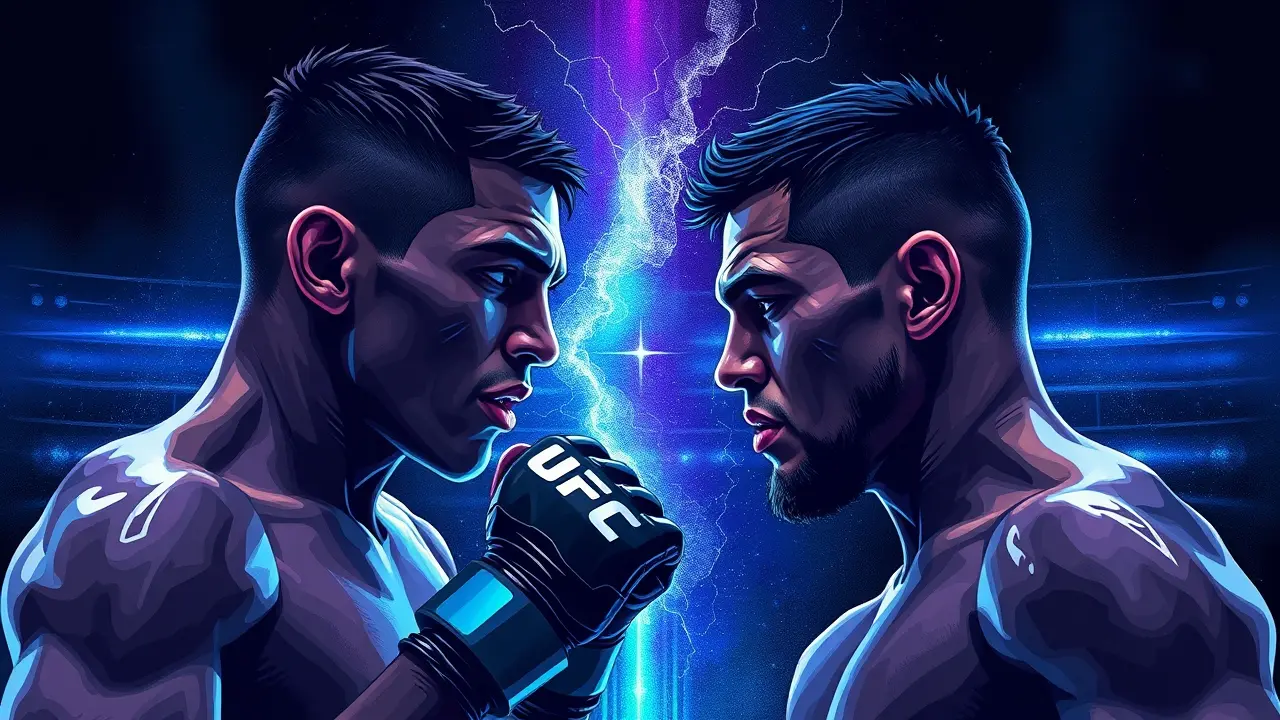
Sportcombat sportsMMA
Oliveira wants Holloway rematch, cites injury in first fight.
JA
Jack Turner
24 hours ago7 min read
In the unforgiving theater of the UFC, where legacies are forged and shattered in the space of a single round, the echoes of past battles never truly fade. For former champion Charles Oliveira, the ghost of a 2015 technical knockout loss to the revered Max Holloway remains a persistent specter, one he is now publicly summoning for a long-awaited exorcism.'Max Holloway is a guy I respect immensely,' Oliveira recently stated, his words carrying the weight of nearly a decade of reflection. 'In our fight, as everyone knows, I was injured.He denies it, but it's the truth. So, a rematch would be a phenomenal event.' This isn't merely a fighter calling out a name; it's a calculated narrative, a strategic reframing of a pivotal moment in both their careers that speaks to the complex psychology of combat sports. Their first encounter, a preliminary card bout at UFC Fight Night 74 in Saskatoon, serves as a stark reminder of the sport's brutal volatility.Back then, Oliveira was the dangerous, submission-savvy contender, while Holloway was the ascending, relentless striker. The fight ended in the first round, with a body kick from Holloway crumpling Oliveira, who cited a pre-existing esophageal injury that was severely aggravated by the blow.Holloway's subsequent denial of the injury's impact adds a compelling layer of personal stakes to the potential rematch; it’s not just about victory or defeat, but about the validation of their respective versions of history. For Oliveira, this is a chance to rewrite the narrative, to prove that a fully healthy 'do Bronx' possesses the dynamic grappling and improved striking to solve the puzzle of Holloway's legendary durability and volume.For Holloway, now a certified legend fresh off his iconic 'BMF' title victory with a last-second knockout of Justin Gaethje, it represents a different kind of challenge—defending his legacy against a former champion who believes the original result was an asterisk, not a definitive statement. The analytics of such a matchup are fascinating.Statistically, Holloway is a volume phenom, consistently landing a higher significant strike rate than his opponents, while Oliveira holds the UFC record for most finishes and submissions, a testament to his predatory finishing instinct. A rematch now would be a clash of two evolved fighters operating at their tactical peaks, a far cry from their 2015 selves.It’s a fight that carries significant implications for the congested featherweight and lightweight landscapes, potentially serving as a title eliminator or a massive marquee event that transcends rankings. Beyond the stats and the stakes, this is a story of redemption, a theme as old as competition itself.Oliveira’s callout is a masterclass in fight promotion, blending respect with a pointed assertion of 'what if. ' It’s a narrative that fans can invest in, one that connects the past to a potentially explosive future, much like the classic rivalries in football where a missed penalty or a disputed offside call fuels a rivalry for generations.The ball, as they say, is now in Holloway's court. Will the 'Blessed' one grant the rematch and settle this old score, or will he pursue other, perhaps more lucrative, challenges? The fight game, much like a dramatic cup final, thrives on these unresolved storylines, and Oliveira has just volleyed the narrative back into play with the precision of a seasoned champion.
#featured
#Charles Oliveira
#Max Holloway
#UFC
#rematch
#injury
#TKO loss
Stay Informed. Act Smarter.
Get weekly highlights, major headlines, and expert insights — then put your knowledge to work in our live prediction markets.
© 2025 Outpoll Service LTD. All rights reserved.